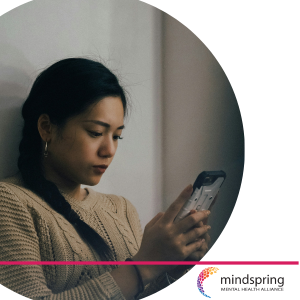
The Impact of Social Media on Mental Health: How to Navigate the Digital World
February 12, 2025
The Positive Side of Social Media
Social media can be a powerful tool for mental health when used mindfully:
-
Community Building: Online platforms allow people to find support and connect with like-minded individuals, such as those experiencing similar challenges.
-
Awareness and Advocacy: Many organizations and individuals use social media to promote mental health awareness, fight stigma, and share resources.
-
Creative Expression: Social media platforms provide outlets for creativity, helping people express themselves through art, writing, or video content.
The Risks of Social Media for Mental Health
Despite its advantages, excessive or unbalanced social media use can negatively impact mental well-being:
-
Comparison Culture: Seeing curated highlights of others' lives can lead to feelings of inadequacy, low self-esteem, and anxiety.
-
Cyberbullying and Harassment: Negative interactions online can cause emotional distress, particularly for younger users.
-
Addiction and Overuse: Scrolling endlessly or relying on social media for validation can lead to unhealthy habits, sleep disturbances, and increased stress.
-
Echo Chambers: Algorithms can create environments where users are exposed to repetitive, often polarizing content, which may contribute to anxiety or depression.
Tips for Maintaining a Healthy Digital Life
Navigating social media in a way that supports your mental health is possible with mindful habits:
1. Set Boundaries: Limit screen time by setting daily usage caps through apps or phone settings.
2. Curate Your Feed: Follow accounts that inspire and uplift you, and limit your interactions with those that negatively impact your mental state.
3. Digital Detoxes: Take intentional breaks from social media to reconnect with yourself and the world around you.
4. Engage Intentionally: Focus on quality interactions instead of mindless scrolling. Comment on posts that resonate with you or share meaningful content.
5. Be Mindful of Triggers: Pay attention to how social media makes you feel. If certain accounts or content leave you feeling drained, it’s okay to step away.
6. Seek Balance: Balance online interactions with offline connections, hobbies, and physical activity.
Seeking Help When Needed
If social media use is significantly impacting your mental health, consider reaching out to a mental health professional. Therapists can help identify underlying triggers and provide coping strategies tailored to your needs.
Social media can be a double-edged sword for mental health. By understanding its impact and adopting mindful practices, you can cultivate a positive relationship with the digital world while safeguarding your well-being. Remember, it’s okay to log off and prioritize your mental health. After all, your offline life is just as important as your online presence.
References
Social Media Addiction and Mental Health
The Social Dilemma: Social Media and Your Mental Health
Psychological Stress and Social Media Use
Back